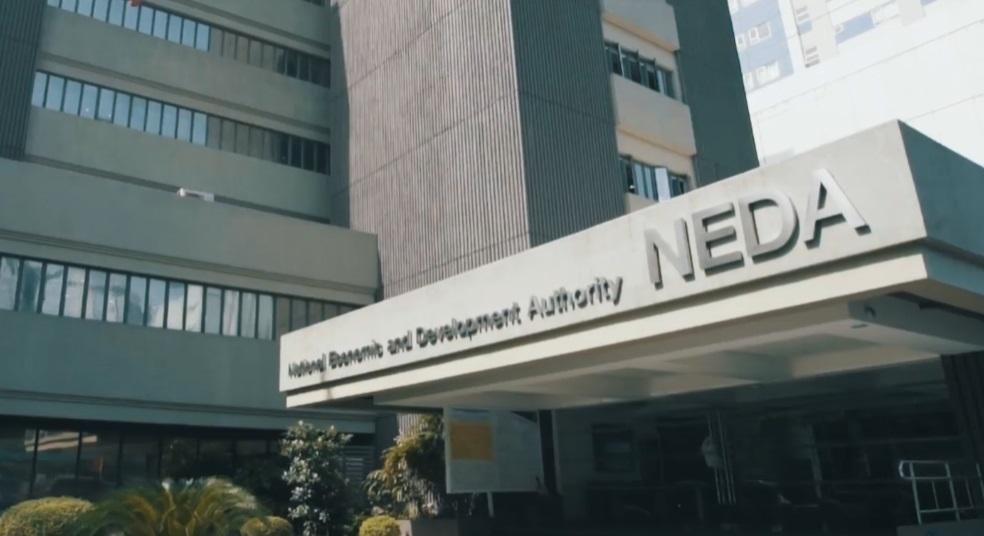NEDA seeks to be reorganized into Department of Economy, Planning, and Development
By TED CORDERO, GMA Integrated News Published March 15, 2024 1:53pm The National Economic and Development Authority (NEDA) is seeking for the reorganization of the agency into a full-blown department under the Executive branch of the government. “As you see, NEDA is an authority. It does not have the equal footing as other departments,” NEDA […]


By TED CORDERO, GMA Integrated News
The National Economic and Development Authority (NEDA) is seeking for the reorganization of the agency into a full-blown department under the Executive branch of the government.
“As you see, NEDA is an authority. It does not have the equal footing as other departments,” NEDA Secretary Arsenio Balisacan told reporters at the sidelines of a forum in Quezon City on Friday.
The NEDA’s origins could be traced back to the creation of the National Economic Council (NEC), under Commonwealth Act No. 2 in 1935. The NEC’s primary mandate was to advise the national government on the formulation and adoption of a state economic program based on the policy of national independence.
In 1973, the Presidential Decree 107 established the NEDA as the primary agency responsible for formulating and continuing coordinated and fully integrated social and economic plans and programs. Meanwhile, Executive Order (EO) No. 230, series of 1987 mandated the NEDA Secretariat to serve as the research and technical arm of the NEDA Board, chaired by the President.
“Over the years, over the decades, NEDA has been given so many other activities, other functions in the form of EOs, and so many committees,” Balisacan said.
The NEDA chief said his agency’s transformation into the Department of Economy, Planning, and Development (DEPDEV) would most importantly ensure the sustainability and continuity of their development efforts, particularly the government’s infrastructure development initiatives.
“We need to have a long-term infrastructure program… Who is shepherding that and how do we ensure that those kinds of programs move from one administration to another? That’s the basic issue we are seeing, that’s why we need to have an agency that will play that role,” Balisacan said.
On Wednesday, the House of Representatives tackled the Economy, Planning, and Development bill.
The measure is the latest iteration of the proposal to reorganize the NEDA into the DEPDEV in pursuit of enhanced policy coherence across the bureaucracy towards achieving the country’s socioeconomic goals.
The bill aims to strengthen and streamline the powers and functions of the economic and planning agency to implement continuing and coordinated policies for national development and ensure that master plans are coordinated, synergistic, and responsive to emerging issues, as well as consistent with the country’s development priorities, strategies, and long-term vision.
The bill also seeks to promote stronger planning-budgeting linkages and more guided implementation of programs and policies consistent with the country’s development agenda.
The DEPDEV will be mandated to issue a planning call directing the government’s planning cycle by prescribing standards, guidelines, as well as compliance and accountability mechanisms.
The DEPDEV shall also update the long-term vision as well as national and subnational development plans and work closely with the Department of Budget and Management to ensure the alignment of the annual and multi-year budget appropriations for the implementation of priority programs and projects to attain identified development targets.
Moreover, the bill will also provide the DEPDEV the mandate of formulating a medium-term national evaluation agenda and oversee the government’s conduct of evaluation studies for its programs and projects. The DEPDEV will also be tasked to implement a capacity-building program on development policy and planning for national and regional government agencies, as well as local government units.
Balisacan said the DEPDEV “doesn’t require much in terms of new offices.”
“It’s just that making it … a more regular agency of government that serves its purpose,” he said.
“The reorganization will help ensure that well-crafted plans do not remain just that and that the policies and projects that the government approves are adequately monitored to check on their progress and rigorously evaluated to examine their effectiveness in realizing intended outcomes,” Balisacan said.—AOL, GMA Integrated News














